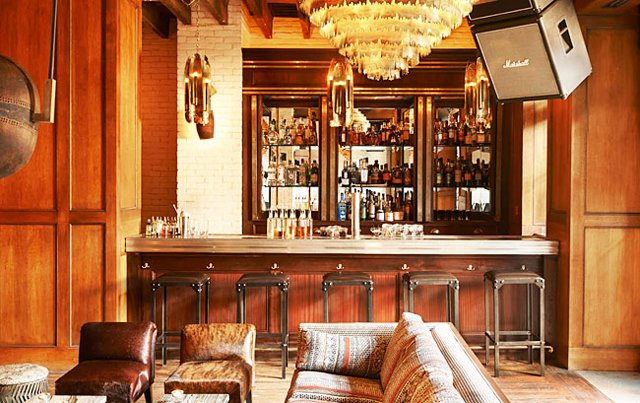Experiencing Barcelona’s Vermouth Culture: A Weekend Tradition
Our Here, Now column explores emerging trends in cities worldwide and provides insights on how to engage with them during your visit.
As the clock approaches 1 p.m. on a Saturday, the unassuming charm of Bodega La Peninsular beckons in Barcelona’s Barceloneta district. While the adjacent beachfront teems with tourists, the narrow alleys preserve the authenticity of classic vermuterías, or vermouth bars, rooted in the district long before the influx of international visitors.
According to Marwa Preston, founder of Wanderbeak, a tour company specializing in bespoke food experiences, the vermouth-drinking tradition has experienced a renaissance in the last decade. Originating as a working-class staple in the 1940s, vermouth fell out of favor but has resurged with newfound popularity. This fortified wine, typically a blend of white wine, spirits, and spices, now graces Barcelona’s Sunday flea markets and fashionable bars. Artisans across Spain are producing small-batch vermouths in innovative flavors, further fueling its resurgence.

Bars like La Peninsular come alive during “vermouth hour,” or la hora de vermut, occurring on weekends between noon and 2 p.m., preceding the Spanish lunchtime. The lively scene attracts a diverse crowd—elderly locals mingle with occasional tourists, all gathered around tables or perched on stools along the marble bar. The social ritual involves sipping vermouth and savoring accompanying snacks like olives, potato chips, anchovies, and tinned seafood.
Sergio Gil, owner of La Peninsular, emphasizes that “la hora de vermut” is more about socializing than the drink itself. It serves as a casual activity to share with friends and loved ones, making it a cherished weekly ritual for many locals.

As the vermouth culture thrives, various corners of the city, including Sant Antoni and Sants, host vermouth bars with unique identities. These locales, like Sant Antoni Gloriós, Pelatti’s Vermutería, Els Sortidors del Parlament, Vermut i la Gàbia, and La Mundana, cater to different tastes and preferences. Sant Antoni and Sants, undergoing their own revival, align with the rising demand for vermuterías.
Newer establishments, such as V de Vermut, attract a younger crowd, offering over 40 types of vermouth and innovative vermouth-based cocktails. Mixologist Martín Pimentel creates concoctions like the tangy Slow Mo and refreshing Bella Dorita, blending in-vogue ingredients with traditional vermouth.
Jaime Recio, a Barcelona native, reflects on the evolving perception of vermouth, once considered an “old man’s drink.” Ordering a glass of honey vermouth, he notes that embracing vermouth has become one of the quintessential “Barcelona” experiences. The city’s vermouth culture, deeply rooted in tradition, now blends seamlessly with modern tastes, making it an ideal way to savor the essence of Barcelona during a leisurely weekend.

































